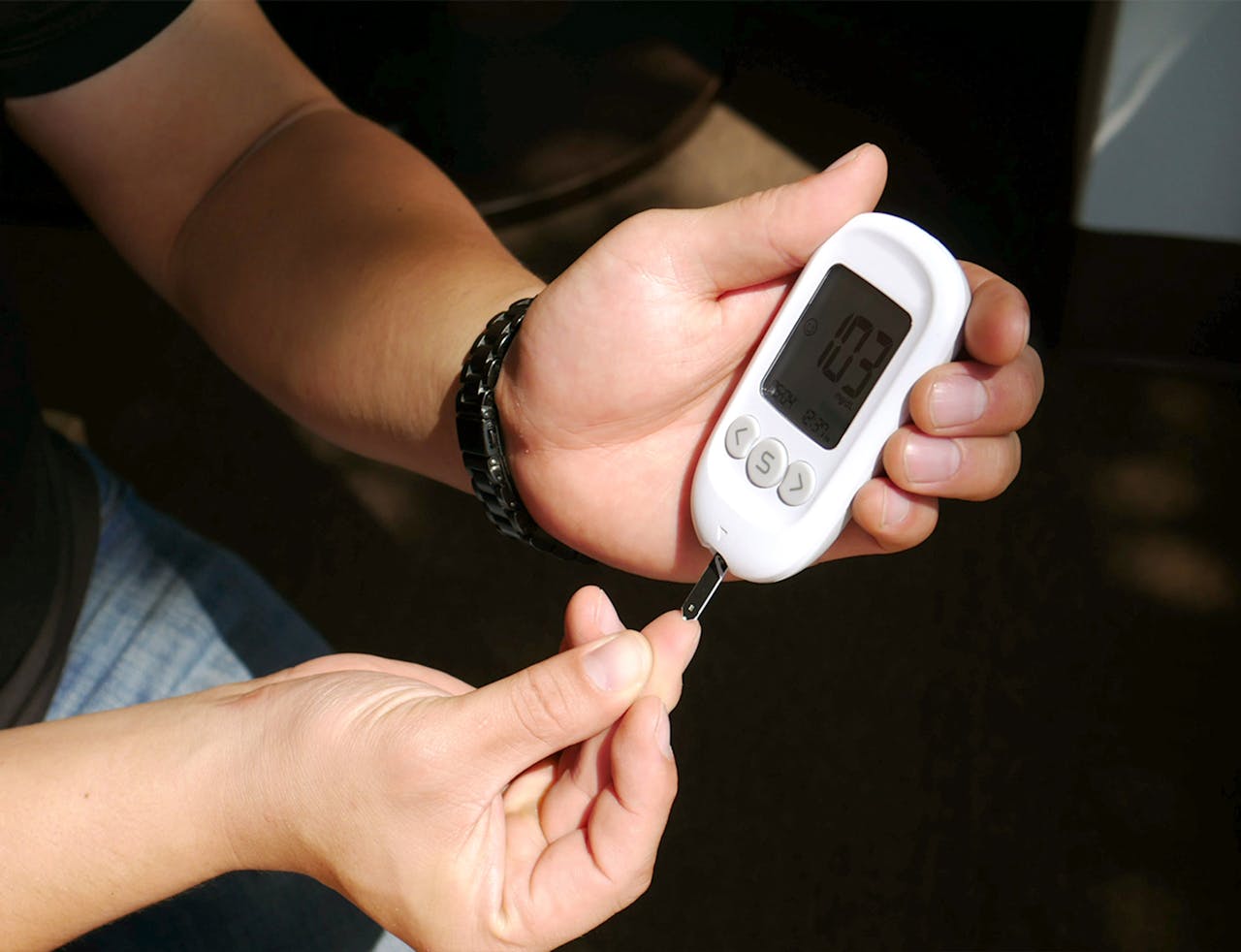World Mental Health Day: Your Mind Matters In Diabetes Care
Mental resilience supports daily decisions, lowers burnout risk, and helps keep glucose care on track.

Quick Intro
People managing diabetes handle a daily mental marathon—monitoring, adjusting, and planning. Studies indicate a 2–3x higher chance of anxiety or depression in diabetes. “Caring for your mind isn’t a luxury; it’s essential diabetes care,” says Dr V Mohan. A stress‑aware routine supports medication, food choices, movement, and sleep.
For mental health resources, see WHO: World Mental Health Day.
Mind–Body Helper
Stress–Sugar Dial
Move the dial. Get a tiny, science‑backed action from today’s guidance.
Breathing & Walk Timers
Brief breathing can ease tension. A short post‑meal walk helps with glucose and cortisol.
What To Watch
- Constant fixation on numbers, irritability, or feeling overwhelmed
- Skipping medicine or healthy habits, withdrawing from routines
- Palpitations or bowel‑habit changes
If these arise, support can be requested from family, peers, counsellors, or clinicians.
Related Reading on Karmactive
Type 2 care & muscle preservation
Overwhelming stress figures
Bone health links
Prevention program uptake
Prevalence updates
Routine & outcomes
Zero‑alcohol period
Risk elevation
Global study
India‑based evidence
Behavioral links
Risk note
Risk linkage
Chronic disease angle
Key Points In Brief
Daily care needs can drive emotional fatigue. Diabetes burnout is tied to continual management demands. Warning signs include fixation on glucose, skipped routines, withdrawal, and physical symptoms.
Short habits help: a 10‑minute post‑meal walk, paced breathing before breakfast and bedtime, and consistent sleep routines. Honest chats with family or peers and quarterly check‑ins can spot issues early.
For global mental health context, see the WHO World Mental Health Day page.


















